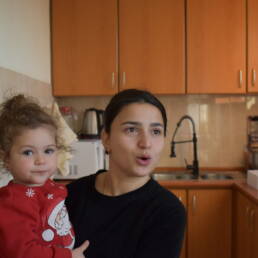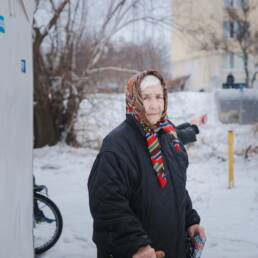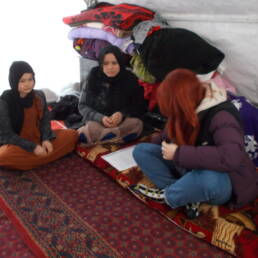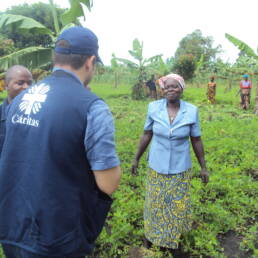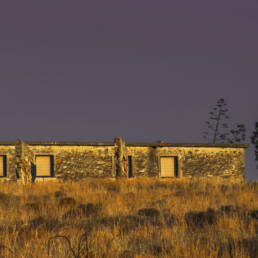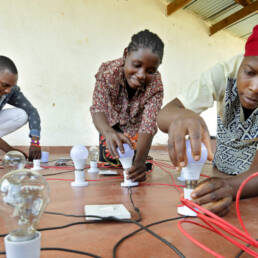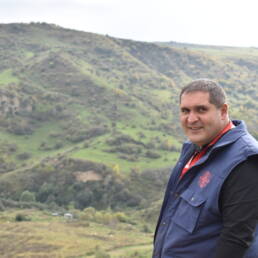Author
Nha-Truc Le
Volunteer Coordinatior
Caritas Vlaanderen
Introduction: International Volunteer work at Caritas in Belgium
For Caritas, volunteering is a main component of its identity. At Caritas, volunteers engage themselves, directly or indirectly, to help those living in vulnerable conditions, having in mind that every human being has the right to live in dignity. As an organization, we also want to contribute to an inclusive society, a society that is able to integrate while respecting differences.
We believe that working in another culture can be an added-value for both the local project and also for the volunteer. Cultivating open-minded thinking and to facilitate exchange. Contact with others develops people’s mutual understanding, it helps to encourage an open view of the world, to become more unified, to connect people and to embrace diversity.
For his first experience in the field, our volunteer – Aurélien – gives his testimony and shares his experience with Caritas Mongolia.
For any questions or information about international volunteering, please contact Nha-Truc Le at nhatruc.le@caritas.be
Caritas in Belgium has local partners in different countries where volunteers are essential to keep the projects going. According to the needs, and together with the partners, we define the position of the volunteer in the organisation in a way that results in a positive impact both for the volunteer and for the partner. The volunteers should not focus on the idea that poor people living under challenging conditions have nothing and do not have capacities to share. International volunteering is also not a holiday or “voluntourism”. Volunteering is not only about having a unique experience to add to one’s CV. A volunteer decides to travel for a purpose, when having something to share and guided by a curiosity to learn from the other.
Caritas in Belgium intends volunteering as a free and non-remunerated commitment. In some cases, our partners can facilitate the accommodation, food and/or transport.
In June 2018, in collaboration with Caritas Mongolia, Caritas in Belgium sent its first volunteer to this expansive country where he stayed for 5 months . Caritas Catholica Vlaanderen (CCVL – part of Caritas in Belgium) and Caritas Mongolia (CM) are committed to providing a safe environment to perform the volunteer role. On one side, CCVL facilitates communication with the partner and it covers the repatriation insurance for the volunteer. In this specific case, CCVL helped to cover some additional costs (travel & visa). On the other side, CM provided the accommodation and local transport to visit activities on the ground.
Testimony

After more than one year of work experience in development at the UN and in Belgium, I felt the need to see with my own eyes and feel with my open heart the real outcome of some of the projects implemented in the global South. When I was in Rome, working for UN, I had the frustration of working for people in another continent without having the possibility to go to the field and see what was really happening.
Going to Mongolia was for me a real opportunity to learn and to share. I wanted to learn from the locals with different culture, realities and experiences. The other reason was also to share my experiences, my culture and my ideas.
The choice of Mongolia wasn’t intentional. I contacted Caritas in Belgium to express my interest in international volunteering. They proposed Thailand or Mongolia as potential countries where to work. After some research, I came to a conclusion that the programmes in Caritas Mongolia fit more my aspirations and interests. I also had the chance to meet Father Pierrot Kasemuana, Executive Director of Caritas Mongolia, who was visiting Belgium for work. After the meeting, I remember he told me “so when would you like to come?” hence the decision was taken, I convinced him and he convinced me.
The first thing that hit me when I arrived was that I immediately felt at home in Caritas Mongolia. Every day for lunch we would go downstairs and eat together, like a family at home would do. I appreciated this little daily ritual. My colleagues knew each other well and completed each other, in their jobs but also in their personalities. The second thing that hit me was the welcoming effort and the importance of making me feel welcome. They attached a genuine interest to share their culture and beautiful country, I felt their pride and their strong desire to share their experiences but also a certain attention and curiosity to listen to my own experiences and understand how I see things, and how I feel about being in their country. I remember Ogï, the driver, who made a detour of a few hours (after a seminar in the middle of Mongolia) just to make it possible for us to visit the old Capital of Mongolia, Karakorum.
In order to work in Caritas Mongolia you need at least one quality which is FLEXIBILITY. My work within Caritas can be summarized by this word. My main task was to create a project around the issue of pollution in Ulaanbaatar. I was also in charge of the visibility of Caritas within the international community present in Ulaanbaatar, creating some factsheets about CM’s different programmes. My work priorities changed when a flash flood happened in the extreme west of Mongolia. I had the chance to help deliver food supplies to people there and to help them as I could. This experience changed my life, and with the team (Tegshee and Ogï) we spent 5 days helping people in the flooded area. It was my first experience in humanitarian response and I am grateful to CM for having allowed me to help people in need.
From one mission to another, I was appointed to be the coordinator for the real time evaluation (RTE) by Caritas Internationalis in our emergency response programme. I had the chance to be trained by Caritas Philippines (thank you very much Jeanie!) in the methodology of RTE. The mission was a success in every way even if I sometimes drove those around me crazy with my stressing!
As I said, my work in Mongolia can be summarised by the word flexibility but also by the acknowledgment of having learned a lot from an experienced team and passionate people. I have the feeling of having learned more in 5 months that in 5 years of university, and I will be always grateful to them. It was not only a professional experience but also a human experience, something that touches you and changes your entire life. I do think it made me a better person.
I arrived in Mongolia with the eyes of a tourist. A Western man, thinking only about the steppe and nomadic culture. It is true, the country is probably one of the most beautiful in the world, with the endless steppe, a strong and beautiful authentic culture that provides rhythm to the daily life of many Mongolian people.
Quickly, my views extended to the reality of the country and all the challenges that it has to face. More than one third of the population lives in the capital city. There is a real issue with internal migration and all the consequences around it.
My feelings about this country are contrasted. On one hand I have been amazed by the richness of the culture and of the nature but on the other hand I felt the frustration of the huge amount of work needed to improve the situation of a large percentage of the population.
I came back from Mongolia enriched, thanks to the amazing people I have met there in Caritas but also among the local population, expats and friends. I have grown in multiple ways and have been given an unforgetable experience. It clearly showed me that the path of working in international cooperation for development is the one I want to follow in my future. It helped me to define what I want to do with the skills I have and where I want to channel my energy.
Special thanks to Father Pierrot Kasemuana, Executive Director of Caritas Mongolia and all the team of Caritas Mongolia for their help and mentoring.




